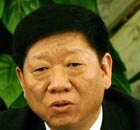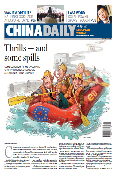Did the US learn the lesson?
Updated: 2009-09-25 08:26
By Yi Xianrong
Pittsburgh will host the G20 summit on Sept 25, in a bid to persuade the participants to carry out major financial reform so as to prevent fresh financial turmoil. In order to help the Pittsburgh summit achieve its scheduled goal, the US has launched its adjustment plan on world economy named "framework for sustained and balanced development", suggesting that the US increase saving and cut budget deficit, while China reduce dependence on export and the EU carry out reform to attract more business investment to restore global growth. The ambitious plan, however, sounds good but it lacks concrete measures in operation.
One year after the outbreak of the unprecedented US financial turmoil, we see no serious reflection in mainstream opinion on the basic causes of the crisis. If the essence and root of the crisis cannot be identified, any more research, coordination or new policies will be of no help in preventing its reemergence in the future.
The mainstream opinion, however, made the mistake of reading the outcome as the cause. In other words, China's dependence on export, insufficient domestic demand, high saving rate and the US' excessive consumption and financial leverage are an outcome of economic globalization under the guidance of the "invisible hand", which displays a balanced distribution of the competitive advantageous elements among various countries rather than imbalance.
Unless the economic and financial globalization gets suspended, the goal of the US plan cannot be fulfilled. It is impossible for China to alter its economic pattern formed in the past several decades in a short-term period even if globalization came to a full stop, because the aforesaid situation in China is determined by the dualistic structure of its national economy, population structure and the return distribution pattern between urban and rural areas. The government's attempt to change the economic mode through administrative means will not only harm China's overall economic performance but may also lead to a real recession. There is no way to get out of the financial crisis and prevent another if the root cause and essence of the issue is not identified through profound reflection.
So, what is the root and substance of the US financial crisis? I believe it is the abuse of the American financial system by Wall Street and the unlimited credit expansion of the financial system in the past three decades. During that period, the governments, financial institutions or individuals all want to take the maximum advantage of the current financial system to meet their own greed through all means they can employ. The result is the endless emergence of the high salary motivation system in Wall Street financial institutions, infinite enlargement of leverage rate of the existing capital, financial innovations, flooding of market liquidity and various financial products, instruments and markets. Without effective supervision from the relevant government departments, these greedy financial institutions and individuals reaped a rich harvest while leaving the burden of huge potential risks to be borne by the whole society. If financial reform cannot start from Wall Street, instead of preventing a new round of financial crisis, we might see accumulated risks on the way ahead.
Did the US government and Wall Street financial institutions never know the root cause of the crisis and that the US and world financial system need major reforms? Someone once noted with insight that Wall Street "kidnapped" the US banking industry, which then "kidnapped" the Federal Reserve. The Federal Reserve, in return, "kidnapped" the whole US financial market and world economy. I think this is true.
I agree to steps being taken to curb excessive bankers' pay jointly advocated by French President Nicolas Sarkozy and German Chancellor Angela Merkel. The distorted generous bonus motivation system resulted in various financial innovations, flooding market liquidity and unlimited expansion of credit. Only through curbing bankers' huge bonuses can financial reform be put on the right track. If the forthcoming G20 summit can rethink the crisis through this perspective, it will be able to find a proper solution.
The author is a researcher with Institute of Finance and Banking, Chinese Academy of Social Science.
Paper's Digest

Chinese jet takes on Big 2
First large commercial plane set to ride on demand for aircraft as economy grows.
Super-CPU only for domestic eyes
Specials

Gaining ground
Doing business in china for westerners has come a long way, Peter batey says.

Safeguarding environment a priority
China continues to face mounting pressure to curb environmental degradation, despite progress in reducing pollution over the last five years, the environmental protection minister warned.

Employment to remain a continuing challenge
China's top labor official said the country will face a tough employment situation in the next five years.




